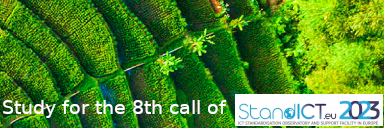Executive summary
The following report presents an analysis of the feasibility of standardizing algorithms provided as a service within data spaces. The study investigates potential sources of trust for users and proposes potential mechanisms that could be established as standard practices to instill trust. Establishing trust in algorithmic services is a critical factor in facilitating the growth of the data economy. This work has received support from StandICT under the 8th call for projects, and the report is creative commons.
The activities around this work include:
– A survey run between members of AI interest group
– Interviews with experts on AI
– Connection with AI groups at different organizations
– Research on the context situation
– A proposal for a possible solution based on an independent certification, with an agile standardization approach and only after running a specific pilot for testing sustainability and market adaptation.
– Conclusions with the most remarkable points
The main findings of this study indicate that the topic under investigation is of significant interest within a dynamic market environment with multiple concurrent initiatives. It is noteworthy that the concept of data sovereignty has received limited attention, primarily intersecting with other dimensions such as privacy, access & identity management in data spaces, marketplaces, cloud services, and ethics. The topic is of considerable interest to all involved agents, but the complexity of the challenge presents organizational and technical difficulties. The study includes a couple of data models to collect critical information necessary for certification, classified into three distinct categories. A practical implementation of these proposals would help validate or evolve the findings further. It is evident that traditional standardization approaches may not suffice to address this challenge, and a complementary approach such as agile standardization is necessary.
